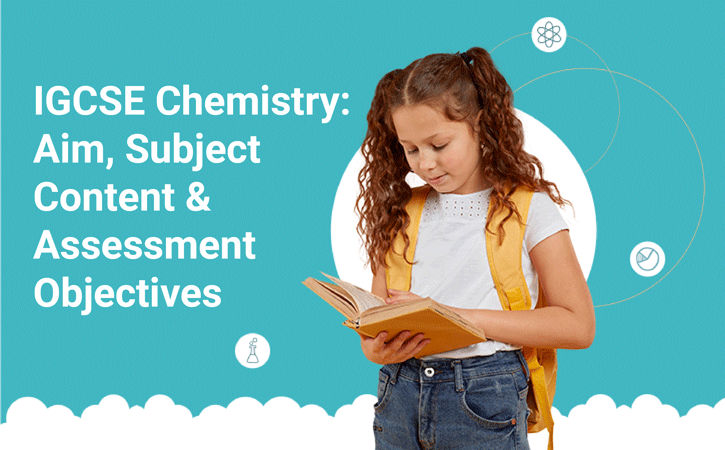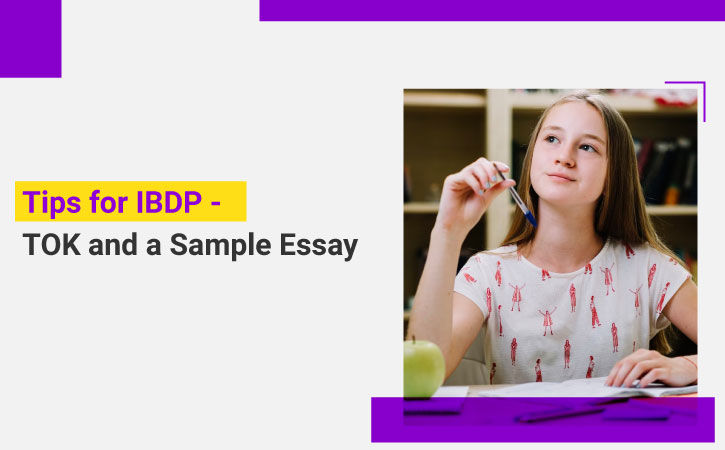

IGCSE stands for the International General Certificate of Secondary Education. This is developed by the University of Cambridge International Examinations. There are two divisions – CIE or EDEXCEL.
CIE stands for Cambridge International Examination and EDEXCEL is offered by a subsidiary of the Pearson company. EDEXCEL is more popular in UK and CIE is opted internationally, this is why CIE seems to be tougher than EDEXCEL as it maintains international standards.
IGCSE offers varieties of courses which are quite different from CBSE/ICSE without much restrictions on the streams the students select. IGCSE board is the best option for those who want to pursue their higher education abroad.
Students can choose from 70 subjects in any combination – it is taught by over 4800 schools in over 150 countries. Cambridge IGCSEs are accepted and valued by leading universities and employers around the world. Many universities require a combination of Cambridge International AS & A Levels and Cambridge IGCSEs or equivalent to meet their entry requirements.
Cambridge IGCSE is the world’s most popular international qualification for 14 to 16 year olds. Cambridge IGCSE helps the students to think and work like scientists by developing curiosity and passion about the subject. It develops a love towards the subject in both students and the teachers. The assessments and the tests are much reliable and valid, help the students to apply their knowledge of the subject. Students will be confident, innovative and open to new ideas which come along their learning journey.
The curriculum is created by subject experts, rooted in academic rigour and reflect the latest educational research. They are better supported by teaching and learning resources and offer a strong foundation for learners to move from one level to the next.
Chemistry is the branch of science that deals with the properties, composition, and structure of elements and compounds, how they can change, and the energy that is released or absorbed when they change. Chemistry is a part of our everyday life – it is in the food we eat, it is in the air we breathe, it is in the dress we wear. Students consider chemistry as one of the difficult but interesting subjects. Application of chemistry enriches our quality of life in different ways by providing new solutions to problems in health, materials, and energy usage.
Cambridge International is committed to providing exceptional quality. In line with this commitment, our quality management system for the provision of international qualifications and education programmes for students aged 5 to 19 is independently certified as meeting the internationally recognised standard.
Cambridge IGCSE Chemistry is aimed at making the learners
Properties and arrangement of particles in solids, liquids and gases-Interconversion between three states-Kinetic particle theory -The effects of temperature and pressure on the volume of a gas- Interpretation of heating and cooling curves-Diffusion and the effect of relative molecular mass on the rate of diffusion of gases
Definitions, examples and differences between elements, compounds and mixtures-Subatomic particles- charge-mass and their arrangement inside the atom-Atomic number, mass number-Writing the electronic configurations-isotopes-relative atomic mass- ionic bond and properties of ionic compounds-covalent bond and properties of covalent compounds-giant covalent structures- Metallic bonding
Calculating the formula mass of a compound- Construct word equations and symbol equations- empirical formula and molecular formula- Calculate reacting masses in simple proportions- The mole and the Avogadro constant-molar gas volume- Use experimental data from a titration to calculate the moles of solute, or the concentration or volume of a solution- percentage yield
Electrolysis- transfer of charge during electrolysis – products formed at the electrodes and describe the observations made during the electrolysis-reactivity series – Construct ionic half-equations for reactions at the anode (to show oxidation) and at the cathode (to show reduction)- electroplating- hydrogen–oxygen fuel cell, advantages and disadvantages
Exothermic and endothermic reactions- reaction pathway diagrams showing exothermic and endothermic reactions-enthalpy changes-activation energy- energy changes during bond making and breaking
Physical and chemical changes-rate if the reaction-effect of temperature, pressure, concentration, catalyst on the rate- practical methods for investigating the rate of a reaction-writing graphs- Collision theory- Reversible reactions and equilibrium- predict the direction of reaction-application of equilibria in Haber’s and Contact process- Identify redox reactions in terms of hydrogen, oxygen and electrons- oxidising and reducing agents
Characteristic properties of acids and bases-indicators- compare hydrogen ion concentration, neutrality, relative acidity and relative alkalinity in terms of colour and pH using universal indicator paper-neutralisation- preparation of soluble and insoluble salts- water of crystallisation
Arrangement of elements- change from metallic to non-metallic character across a period- similarities in the chemical properties of elements in the same group- trends in groups-group 1 elements-group 7 elements-transition elements-noble gases
Physical properties of metals and non-metals- general chemical properties of metals- Uses of metals- Alloys and their properties- Reactivity series- order of reactivity from a given set of experimental results- Corrosion of metals-methods to prevent corrosion- Extraction of metals including Fe and Al
Chemical tests for the presence of water-purity testing- treatment of the domestic water supply – Fertilisers- composition of clean, dry air- adverse effect of air pollutants-acid rain-global warming- n strategies to reduce adverse effects of pollutants-photosynthesis
Formulae, functional groups and terminology- Naming organic compounds- Fuels-fractional distillation-uses of different fractions- Bonding, properties and reactions of Alkanes, alkenes, alcohols, carboxylic acids-polymers- addition and condensation polymerisation.
Advantages and disadvantages of experimental methods and apparatus-separation and purification techniques- Acid–base titrations- Chromatography and Rf values- Identification of ions and gases
Core candidates take paper 1 and 3. Extended candidates take paper 2 and 4.
This paper tests assessment objectives AO1 and AO2 This paper assesses grades A* to G Externally assessed
All candidates take one practical paper from a choice of two.
Manya – The Princeton Review offers end-to-end study abroad services encompassing admissions consulting services, test preparation, English language training, career assessment, and international internship opportunities to study abroad aspirants. Founded in 2002, Manya holds an impeccable track record of enabling more than 4 lac students to accomplish their study abroad dreams through its network of 47+ centers across India.
Manya has formed long-lasting global alliances with several market leaders in the education industry in order to maximize the benefits of its large service portfolio. Their list of esteemed partners and affiliations includes – The Princeton Review (TPR), Cambridge University Press (CUP), Cogito Hub, British Council, Tuding to name a few. Manya has also forged 600+ partnerships with international universities across top study abroad destinations.
Book your Free Counselling Session now!Yes, in IGCSE Chemistry, the term “rate of reaction” is permissible. Even an IGCSE student can use the term “speed of reaction” instead of “the rate of reaction ‘.
Yes, The periodic table is given in the IGCSE Chemistry paper. It is provided in theory and MCQ paper. But not in the practical paper.
“State”, refers to the unique answer or explanation. On the other hand, “Suggest”, refers to no unique answer or explanation. This is the basic difference between these two terms in IGCSE Chemistry.
No, there is no penalty for any spelling mistake in a chemical name in the IGCSE Chemistry. But as long the name is recognizable and beware of the similar phonetic spelling mistakes, like ethene and ethane.
Yes in IGCSE Chemistry labeling on the drawing is required. Like while drawing a Hydrogen atom, one needs to put labels on the sticks.

Tips for IBDP-TOK and a Sample Essay